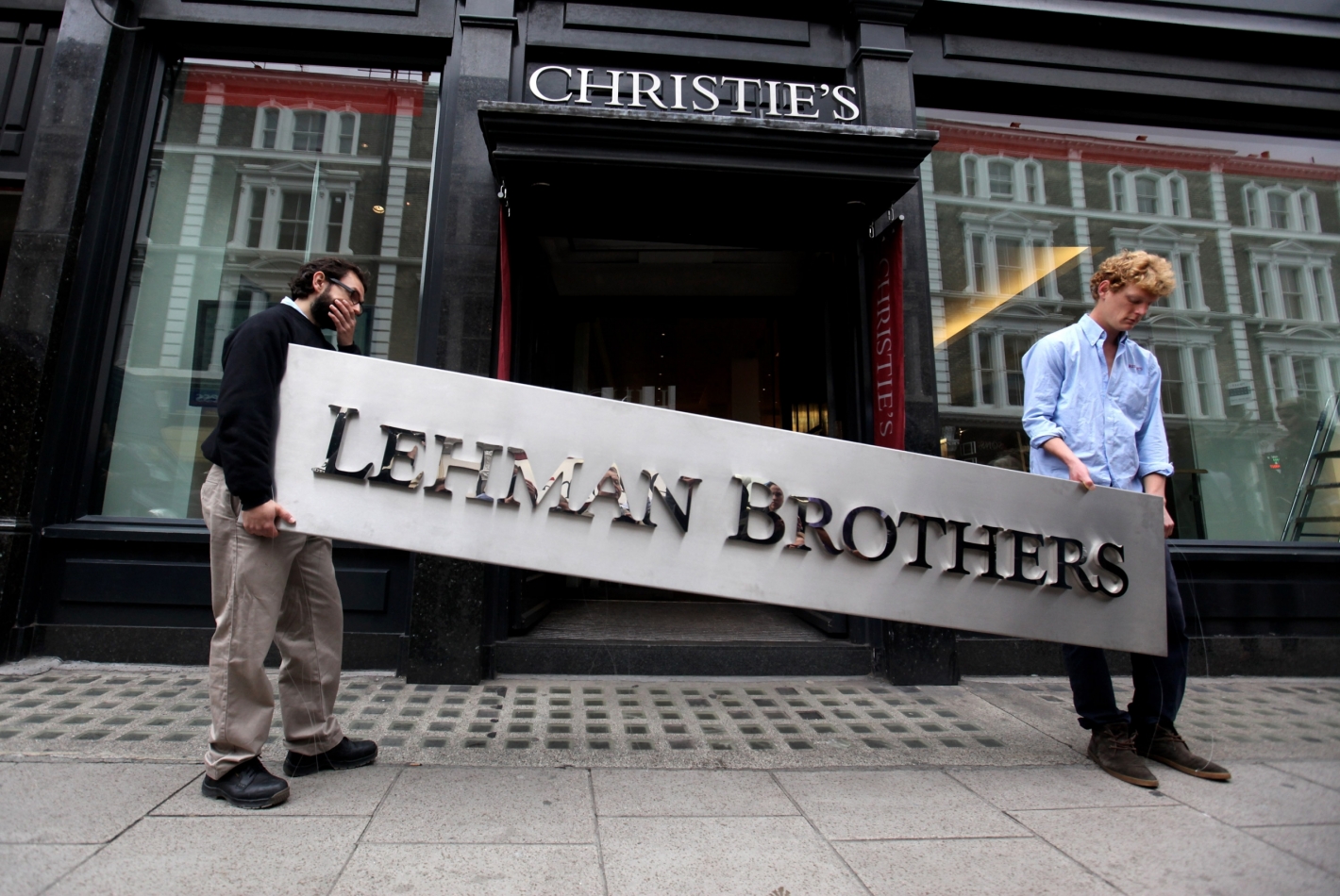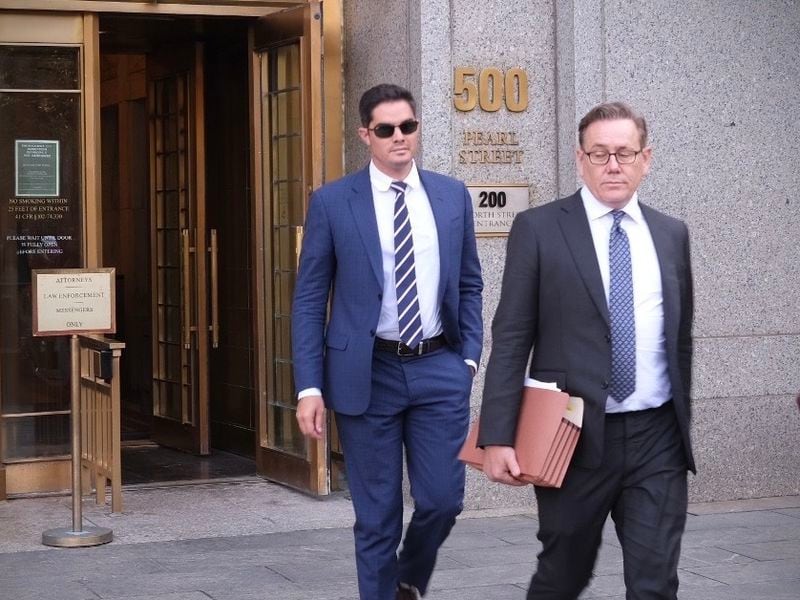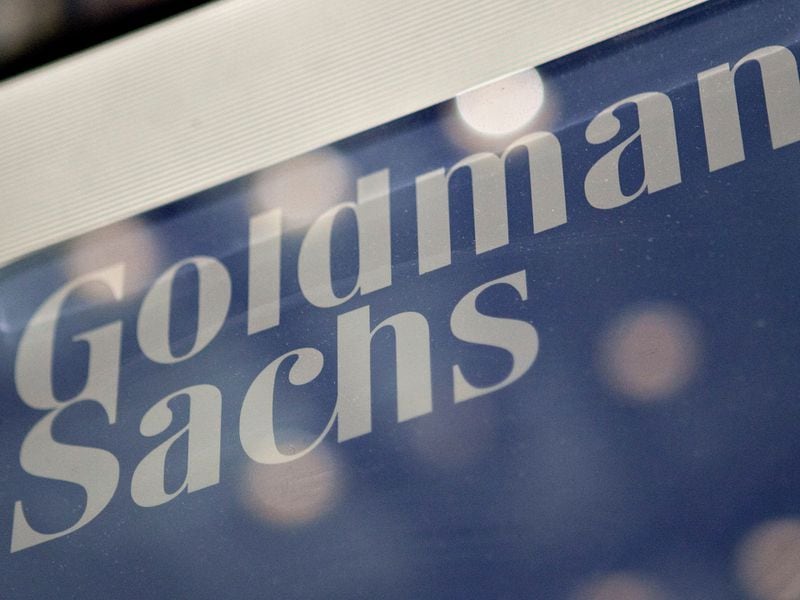Blockchain Bites: Ghosn’s Crypto Payments, Russia’s Red Line and Why Banks Won’t Bite
(Jan Antonin Kolar/Unsplash)
Blockchain Bites: Ghosn’s Crypto Payments, Russia’s Red Line and Why Banks Won’t Bite
Cryptographers call out Craig Wright’s latest claims, blockchain business deposits are growing at Signature and Carlos Ghosn’s smugglers were paid in crypto.
You’re reading Blockchain Bites, the daily roundup of the most pivotal stories in blockchain and crypto news, and why they’re significant. You can subscribe to this and all of CoinDesk’s newsletters here.
Top shelf
Cryptic Payments
The son of former Renault and Nissan head and fugitive Carlos Ghosn used Coinbase to pay two men $500,000 in bitcoin to get his father out of Japan last December. U.S. prosecutors said Wednesday that Anthony Ghosn sent 63 bitcoin to Michael and Peter Taylor, a father and son team who smuggled Carlos Ghosn out. Coinbase gave evidence to Japanese investigators this week, showing a series of transactions between January and May 2020 from Ghosn’s Coinbase account to one belonging to Peter Taylor. Wednesday’s filing shows a bank account managed by Peter Taylor also received two wire transfers, totaling over $870,000, from Carlos Ghosn’s account in October 2019.
Work to Do
The Office of the Comptroller of the Currency (OCC) said banks can provide custody services for cryptocurrencies. The move is widely praised as a step towards mainstreaming crypto. However, it’s unclear whether banks will immediately act on the regulatory clarification. Congressman Darren Soto (D-Fla.), said the letter was “an important step” to better integrate cryptocurrencies into the U.S. financial system, but cautioned “the federal government is still behind in incorporating” cryptocurrency. “I don’t expect you will see much change in the next three to four months, but then we might see some acceleration thereafter,” Trustology CEO Alex Batlin said. “This will come up as banks will be holding investment committees for funding approvals for the next year.”
Assessment of the Facts
Four experts agree that Craig S. Wright’s latest claims about Bitcoin message-signing are wrong on the facts. Wright, who claims he’s Bitcoin’s pseudonymous creator, is embroiled in a legal battle that hinges on his purported ownership of a number of the earliest Bitcoin addresses. Recently, an anonymous user signed a public message using 145 of those keys, calling him a “liar and a fraud,” an accusation Wright countered by saying, “You cannot have a digital signature that is anonymous, by definition.” Four cryptography experts now dispute these claims, with Johns Hopkins associate professor Matthew Green saying, it “makes zero sense to me as a cryptographer… If Craig Wright is saying something meaningful here then he needs to slow down and explain it more clearly. Because the words he’s using sound like nonsense to me.”
Red Wall
Russia’s Federal Security Service, or FSB, the successor to the KGB, supervises all industries related to cryptography and may be holding back the local blockchain sector. The FSB’s rigid certification process for crypto companies could cost more than $100,000 and take at least a year, according to experts on the Russian enterprise blockchain market. Further, this borderless technology is sometimes stonewalled by the watchdog, which is distrustful of foreign-developed blockchains. It works in reverse too. Russian-made systems might end up isolated from the global market due to distrust of Russian government cryptography standards.
Future of the Internet
A debate hosted Wednesday night featuring Protocol Lab’s Juan Benet, Ethereum creator Vitalik Buterin and former Coinbase executive Balaji Srinivasan detailed competing visions for the future of the internet. While all parties agreed the world needs to move towards decentralized models – especially in social media – there were differing opinions about how and when data should be verified in distributed systems. “My impression is we are headed to a much better future where the data structures are going to be decoupled from the [user interfaces],” Benet said. “There will be many different systems built atop the same information graph.”
Quick bites
- Arca’s flagship crypto hedge fund is up 77% in 2020
- Crypto bank hopeful Bitcoin Suisse raised a $48 million Series A
- Central bank board member says CBDCs raise more questions than answers – calling it “helicopter money”
- Opera’s built-in crypto wallets have 170,000 monthly active users
- SEC registered broker-dealer is launching a security token platform called Gladius
The big idea
Signature Bank saw $1 billion in deposit growth in the second quarter of 2020 from the firm’s digital assets team, according to its latest filing.
The New York-based bank is one of a handful – including Silvergate Bank and Metropolitan Commercial Bank – willing to take deposits from blockchain firms. And it’s a risk that seems to be paying off.
Signature’s blockchain-related business lines represented one-eighth of the firm’s total $8 billion deposit growth this quarter.
“The crypto industry is often a rich source of low-cost, non-interest bearing deposits for crypto-friendly banks like Signature,” CoinDesk’s Nathan DiCamillo reports. According to Signature CEO Joseph DePaolo on the firm’s earnings call, the cost of those deposits decreased to 56 basis points from 98 basis points because of the low interest rate environment.
“This is now the fourth consecutive quarter exceeding $1 billion in both total and average deposit growth, non-interest bearing deposits of $16.1 billion still represent a high 32% of total deposits since the second quarter of last year,” DePaolo said.
For years, crypto and banking was like oil and water. Most of the Wall Street banking powerhouses – like Chase, Citigroup and Wells Fargo – were reluctant to enter into this poorly understood and underregulated market.
In 2017, for instance, J.P. Morgan Chase CEO Jamie Dimon called Bitcoin a fraud. It now looks like he’s singing a different tune – with his bank taking on Coinbase as a client last May.
Brian Brooks, Coinbase’s former chief legal officer and now senior deputy at the Office of the Comptroller of the Currency, which recently issued a letter allowing crypto custody among chartered banks, said at the time the trend will likely continue.
This doesn’t necessarily mean the original lot of crypto-friendly banks will be pushed out of the market. Silvergate, which once banked Coinbase, has plans to continue expanding its crypto services.
In an industry of constant evolution, there will always be new paths to profits.
Market intel
Flatlining Interest
Volume and open interest on Bakkt has flatlined at $0 since June 15, according to Skew. The Intercontinental Exchange’s subsidiary launched its bitcoin options market in December 2019. Open interest for the exchange’s options market has suffered complete inactivity before, but the current 38-day streak dwarfs other periods. Bakkt’s options volume has also dropped to $0 since April 23, Skew said.
Going Public?
Digital-asset industry insiders say a move toward more public ownership of crypto firms could accelerate mainstream adoption. “By becoming publicly traded, cryptocurrency-focused companies could appeal to investors in the $35 trillion U.S. stock market. Back-of-the-envelope math shows that just a 1% allocation into crypto stocks could mean $350 billion of new investments for companies in the space,” CoinDesk’s First Mover reports. The total market value of all digital asset markets currently sits at $287 billion. According to CoinDesk Research, there’s more than two dozen publicly-traded firms, with many more like Coinbase and Ant Group rumored to be in the process of listing.
Opinion
Banks Won’t Bite
Alex Mascioli, head of institutional services for Bequant, thinks banks aren’t likely to jump at the opportunity to custody crypto assets. Last Wednesday, the Office of the Comptroller of the Currency (OCC) announced banks can offer crypto and digital asset custody to their clients, which could be a profitable new business line. However, there’s inertia standing in the way. “The bulk of banks and other sophisticated players in the old school markets don’t know much about our industry. Most of them don’t appear to have even done anything as basic as buying a fractional Bitcoin on Robinhood,” he writes.
Podcast
Big Tech’s Effect on Small Biz
Sahil Bloom, an investor with Altamont Capital Partners, joins as a guest on the latest episode of The Breakdown to discuss the recent increase in joblessness claims, remote work and Robinhood traders.
Who won #CryptoTwitter?


Disclosure
The leader in blockchain news, CoinDesk is a media outlet that strives for the highest journalistic standards and abides by a strict set of editorial policies. CoinDesk is an independent operating subsidiary of Digital Currency Group, which invests in cryptocurrencies and blockchain startups.








